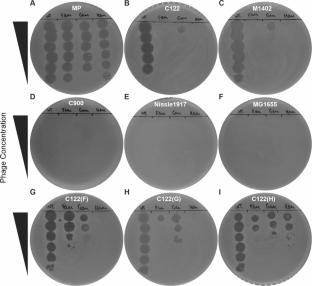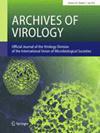Designing a simple and efficient phage biocontainment system using the amber suppressor initiator tRNA
Abstract
Multidrug-resistant infections are becoming increasingly prevalent worldwide. One of the fastest-emerging alternative and adjuvant therapies being proposed is phage therapy. Naturally isolated phages are used in the vast majority of phage therapy treatments today. Engineered phages are being developed to enhance the effectiveness of phage therapy, but concerns over their potential escape remain a salient issue. To address this problem, we designed a biocontained phage system based on conditional replication using amber stop codon suppression. This system can be easily installed on any natural phage with a known genome sequence. To test the system, we individually mutated the start codons of three essential capsid genes in phage φX174 to the amber stop codon (UAG). These phages were able to efficiently infect host cells expressing the amber initiator tRNA, which suppresses the amber stop codon and initiates translation at TAG stop codons. The amber phage mutants were also able to successfully infect host cells and reduce their population on solid agar and liquid culture but could not produce infectious particles in the absence of the amber initiator tRNA or complementing capsid gene. We did not detect any growth-inhibiting effects on E. coli strains known to lack a receptor for φX174 and we showed that engineered phages have a limited propensity for reversion. The approach outlined here may be useful to control engineered phage replication in both the lab and clinic.


 求助内容:
求助内容: 应助结果提醒方式:
应助结果提醒方式:


